Summer is coming. Knowing its tonnage is important if you want to replace, repair, or upgrade your Carrier air conditioner unit. You will not need to sweat it out. We researched this for you. So, let us keep up with the hot weather!
A wide selection of Carrier AC units is available on the market in different tonnages. The tonnage you will encounter ranges from 1.5 to 5 tons. You can determine how many tons your AC unit is using the manual or data plate beside your AC condenser or outdoor unit.
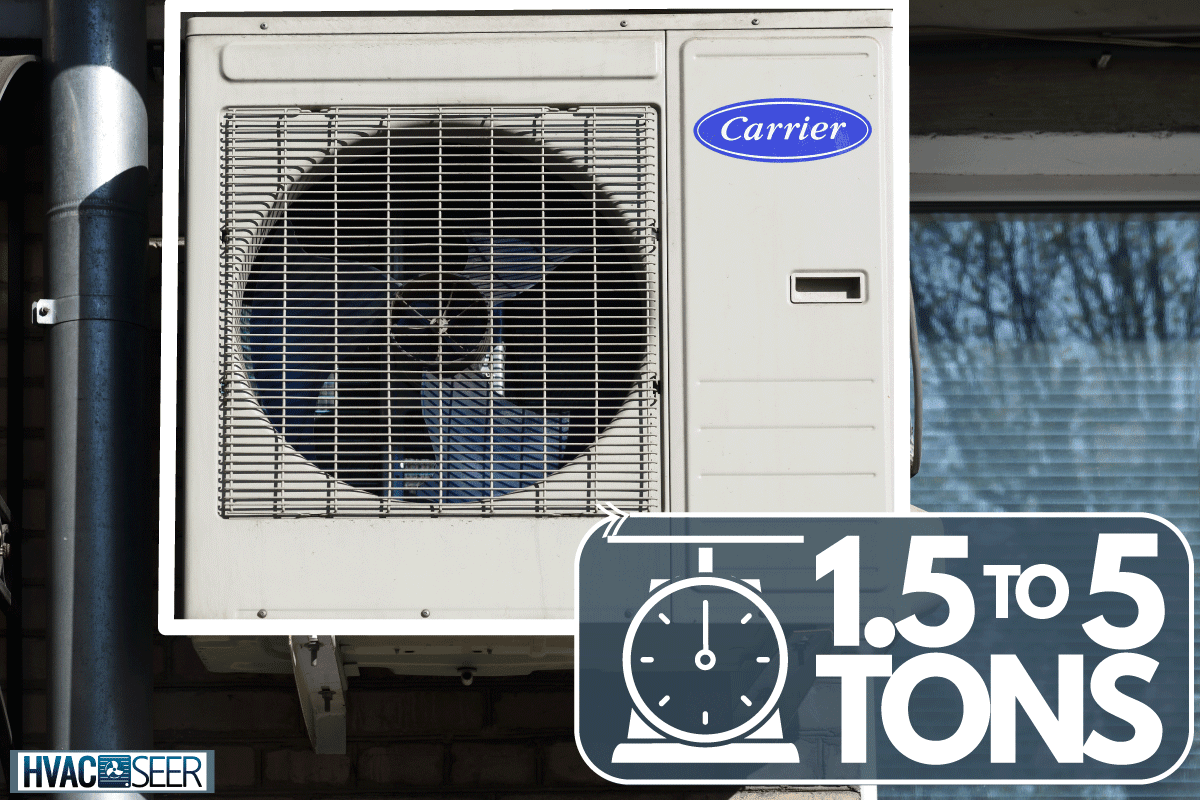
The correct information is crucial before you purchase or troubleshoot an AC unit for your home or workplace. This will save you time, effort, and money. Please keep reading. We are here to guide you in finding your AC unit's tonnage and other relevant details about it.
How Do You Tell What Tons My Carrier AC Unit Is?
Identifying what tons your Carrier AC unit is simple. All you need is to find the model number.
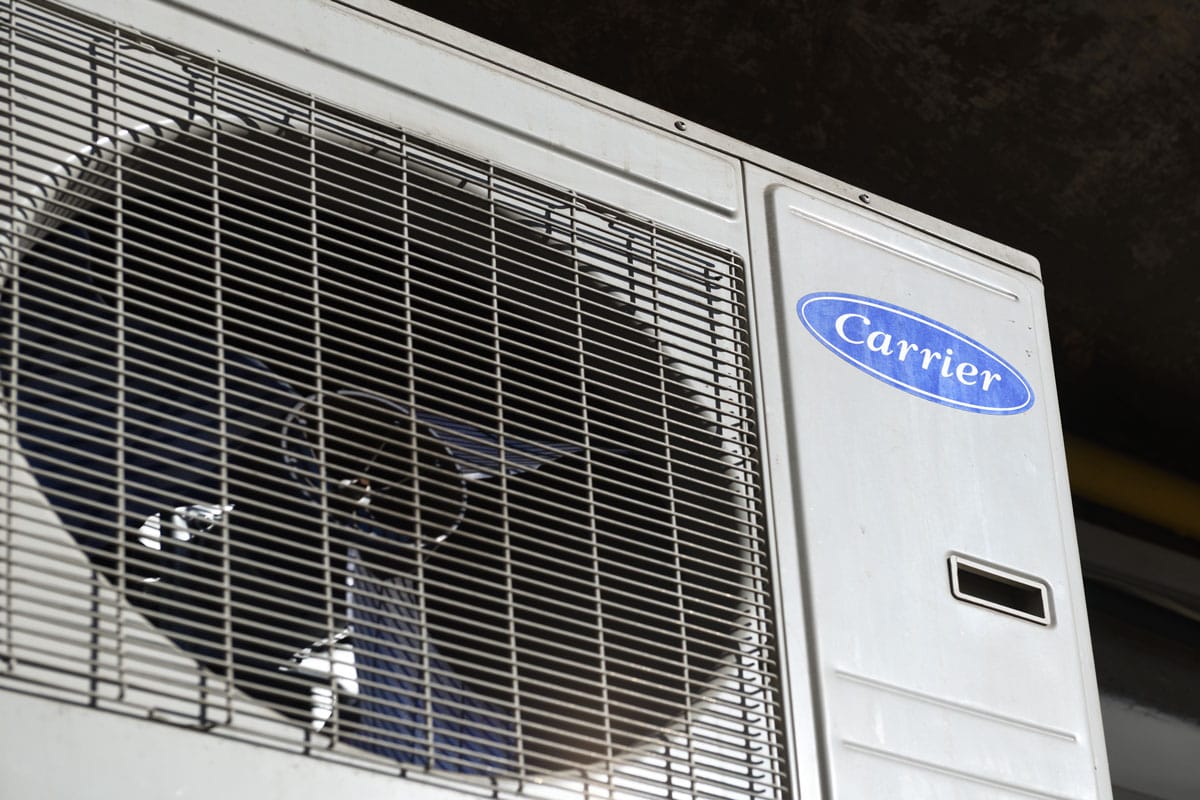
Model Number
You can either locate the model number on the product manual or guide booklet that came with the unit or check the metal plate attached to your AC condenser.
The manual and metal plate display several pieces of information. So, be careful not to be confused with the different Carrier AC models and other details included in them. Look for the 6th or 7th, and 8th characters on the model number. This pair must be an even number and divisible by 12.
For instance, the model number is "38TN0363." This has 3 and 6, making it 36. It denotes 36,000 Btu. Remember that the standard formula: 1 ton of cooling equals 12,000 Btu. Hence, you will divide 36,000 Btu by 12,000 Btu. The result will be 3, meaning your AC is 3 tons.
Rated Load Amperage [RLA]
However, with constant sun exposure over the years, the print on the plate might already be faded. Thus, another way to know the tonnage of an AC unit is by checking out the compressor's RLA on the data plate.
The RLA determines the maximum current when the compressor is running. Most AC compressor has 5 to 6 RLA per ton. With this, divide the number you see by 5 or 6 to get the estimated tons. Remember that RLA conversion to tons is only a rough estimate.
What Does Your AC Tonnage Mean?
The AC tonnage tells you the size but not the actual weight of your unit. In the US, manufacturers specify AC and refrigeration systems' cooling capacity in tonnage or tons.
The ton of refrigeration or tonnage refers to the heat-extraction capacity of an AC. It takes approximately 12,000 British thermal units [Btu] or 3.5kW to melt one ton. This measurement system describes the rate of 1 ton of ice to remove heat or melt in 24 hours.
With this, your AC cooling ability affects its performance and energy use. The higher the AC tonnage, the more coverage and energy consumption.
How many tons of AC do I need per square foot?
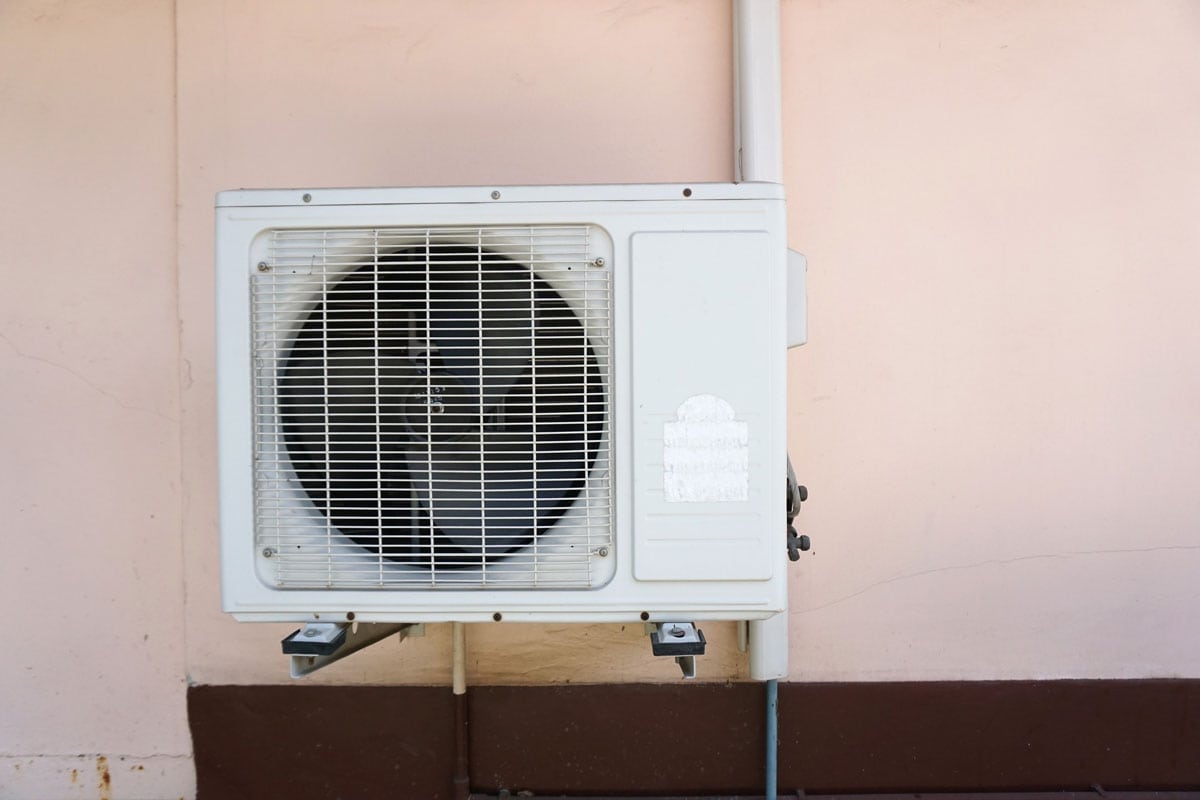
To compute the number of tons needed per square foot, you may contact a professional HVAC contractor to assess your unit or do it yourself.
Factors To Consider For AC Tonnage
Before computing the tonnage, you must be aware of the factors affecting your sizing. Generally, the larger the dimensions and number and presence of exposure will increase the needed capacity of the AC. The factors that you will take into consideration include:
- Room floor size
- Ceiling height
- Number of people or occupants
- Number of appliances
- Number of windows
- Number of exterior doors
- Type of existing insulation
- Exposure to the sun
- Exposure to the kitchen area
- Location/State
AC Tonnage Calculation
To determine if your AC is the right size for your home, a tonnage calculator will help you. This will require you to input most of the factors mentioned above. Considering these factors, a 1-ton AC can cover every 600 sq ft. Thus, you will need 0.0016 tons on one square foot.
How many tons is a typical residential AC Unit?
Most residential-type AC units start at 1.5 tons up to 5 tons with a 0.5 increment. In other words, these units can be coded between 18,000 and 60,000 Btu. The cooling capacities of residential units can cover up to 3,000 sq ft of room.
What Does 1.5 Ton AC Mean?
A 1.5-ton AC is an ideal choice for a 900-square feet room. If you have the Carrier Comfort AC unit, it requires engine power of 7.07 horsepower to function at full speed. Meanwhile, its energy efficiency ranges from 14.0 to 16.5 SEER rating. With this rating, your AC consumes around $504 to $441 in electricity annually.
What Happens If AC Tonnage Is Too High?
Do you consider upgrading your AC unit's tonnage? A bigger AC unit is not always a good solution. An oversized HVAC system will not increase your comfort but will give you a year-round headache. Here are common issues you would experience with oversizing.
Persistent Short Cycling
The compressor plays a critical role in your AC. It enables the refrigerant to evaporate and condense. With this, heat removal from your home takes place. Typically, one cycle runs for at least 15 minutes.
Thus, if your AC restarts within 10 minutes, short cycling happens. Short cycling results when the compressor spends more energy to start up again.
Abrupt starting and stopping of AC compressor also produce odd noises, indicating that your compressor is overworked. An overworked compressor can trigger your circuit breaker to trip.
Inconsistent Cooling
You may have some areas that are hot spots. Fluctuating temperatures are common because of the inconsistent airflow that an overworked compressor produces. The poor functioning decreases air quality. As a result, your comfort and sleeping hours may also diminish.
To know more insight about other reasons causing this problem, read "Carrier Air Conditioner Not Cooling - What's Wrong?"
High Humidity
AC units have the function of regulating humidity levels without changing indoor temperature. But with oversized AC, the dehumidification capacity will not take place as long enough as it should be.
High humidity in your home leads to a chain of problems, specifically moisture problems. You will notice mold and mildew in your ducts and a foul odor in the room.
In the worst cases, there may be wet stains on ceilings and peeling paint on your home interiors, such as wallpaper, floor, and furniture. Likewise, these problems can trigger allergy symptoms in you and your family and friends.
Higher Electric Bill

During summer, electric bills will probably spike. But, if you notice that your energy use has been increasing unexpectedly, it is time to turn to the experts and check your AC compressor. Oversized AC works less efficiently than the correct size.
Premature Damage
Although different factors affect your AC unit's lifespan, the Carrier unit lasts for several years. This varies from 15 to 25 years. However, an overworked compressor will cause premature damage.
Repairing it may not be expensive if the AC is still within the warranty years. Most Carrier AC units have 5 to 10 years of warranty for the compressor. Nonetheless, constant visits for the repair cost you several days or even months of inconvenience.
Remember that sometimes your AC unit needs to be upgraded as well. Having undersized AC is as much problematic as using an oversized counterpart. It has similar symptoms. Hence, find the right AC system for your place.
To explore several ways to make your unit last for a long time, check out this post: "How Long Does A Carrier Air Conditioner Last?"
How Do I Read Carrier Package Unit Model Number?
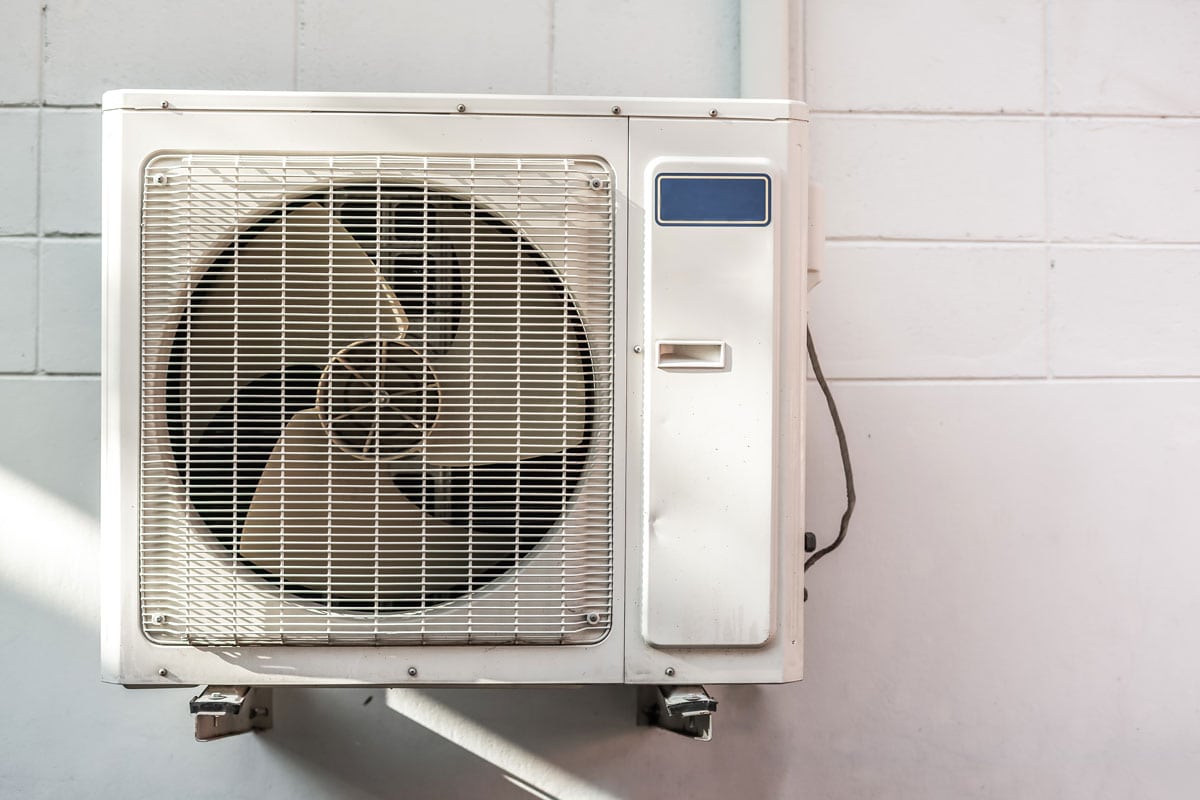
The Carrier model number has alpha-numeric characters. Its format varies. For example:
- 38TN0363
- 38HKS048-121
In addition, each character or pair is a code that provides you with product information. Here is the breakdown of the Carrier model number:
- "38" denotes condensing unit.
- "TN" identifies the design series and sequence.
- "036" means the nominal Btu input.
- "3" describes the code for voltage.
The model number differs from the serial number. To find the distinction between the two, read this post: "How Old Is My Carrier Air Conditioner."
Final Words
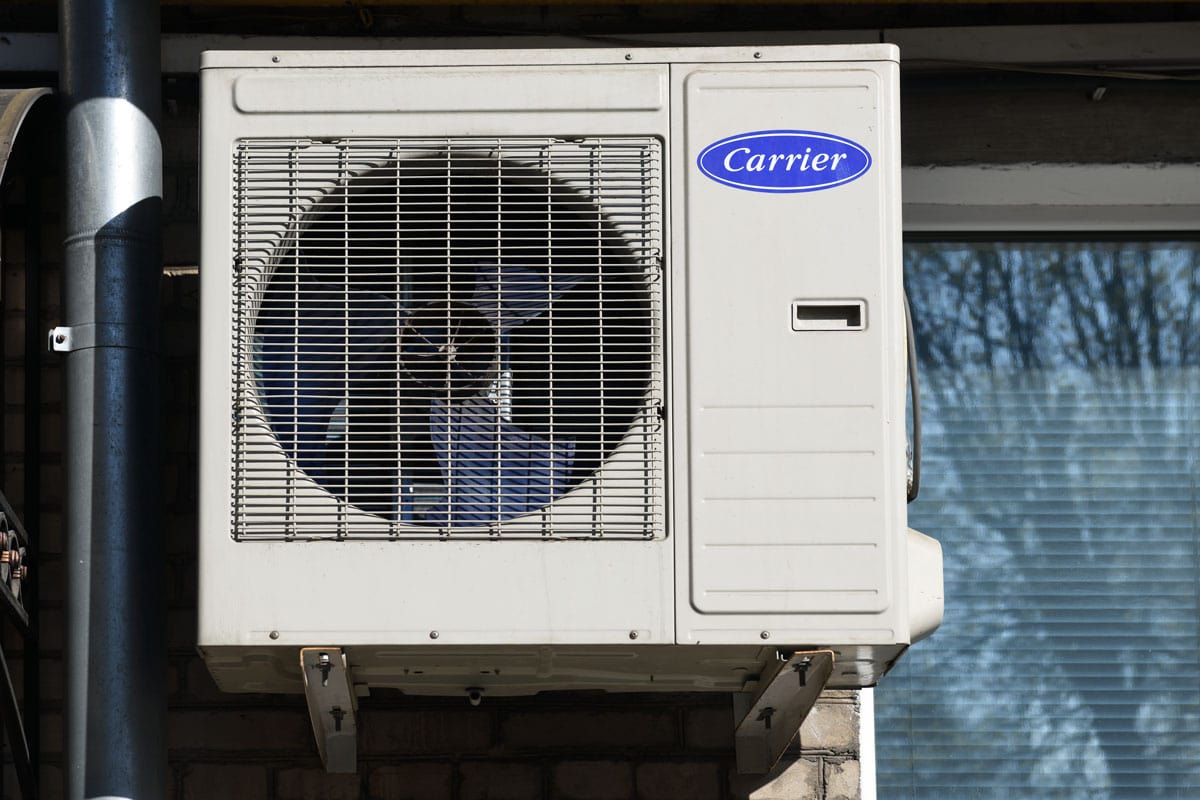
The Carrier offers a variety of tonnages for AC units. But, knowing what tonnage you already have is crucial when you want to get a new unit or repair an old one. Fortunately, Carrier has foreseen these scenarios for its users.
Thus, knowing and understanding your model number will help you determine the tonnage. The tonnage must meet all the pertinent factors that affect your AC's cooling capacity and longevity. After all, Carrier makes AC units to bring comfort to your home or workplace. Beat the summer heat!
If you enjoy this post, check out these related articles:
